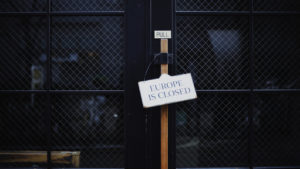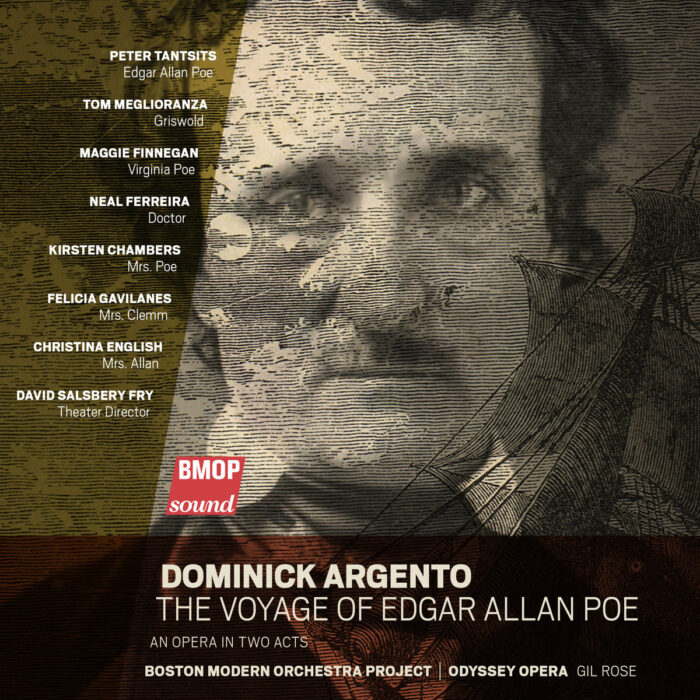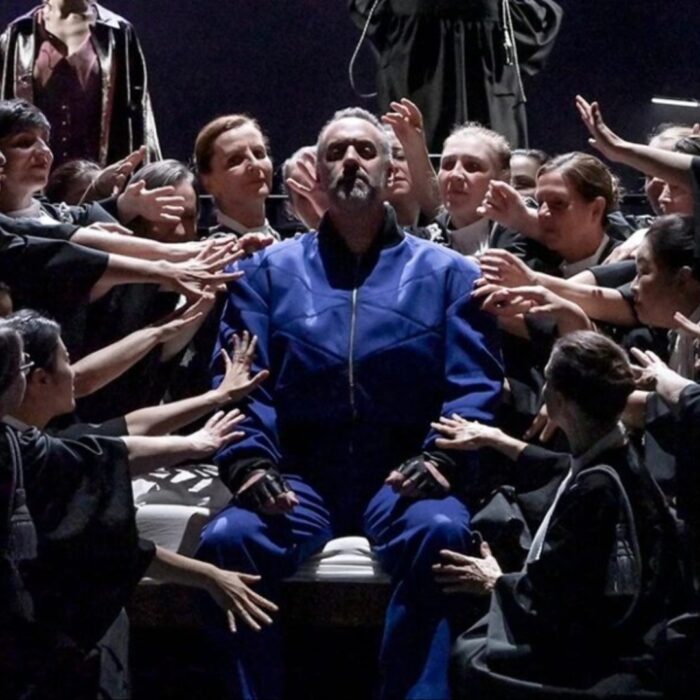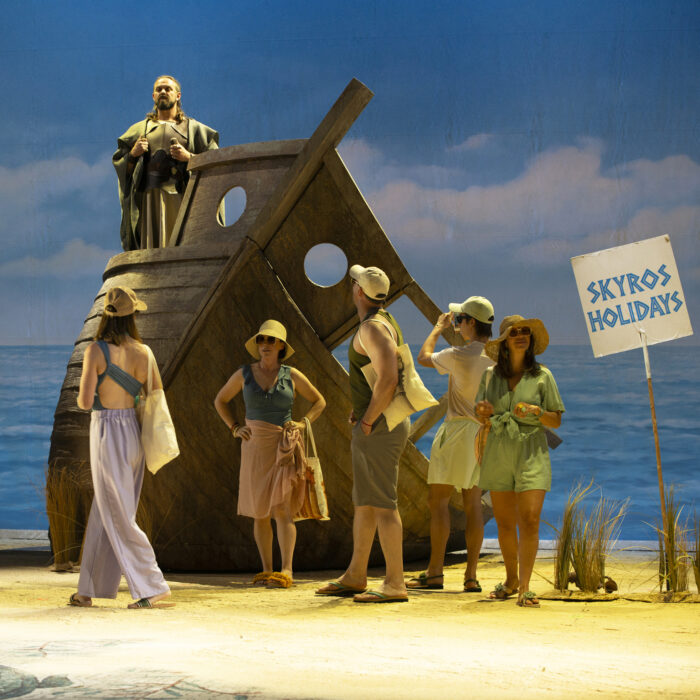
Criticism on Fridays: Brexit Holds UK Artists Hostage
How Much Politicians’ Games Across La Manche Will Cost Musicians
By Polina Lyapustina(Photo: Masaaki Komori, edits P. Lyapustina)
Every Friday, Polina Lyapustina delivers a short essay on some of the most sensitive topics in the industry with the intent of establishing a dialogue about the opera world and its future.
At the very end of December of an already very difficult 2020, the European Commission president Ursula von der Leyen and UK Prime Minister Boris Johnson signed the EU-UK Trade and Cooperation Agreement.
This document, among other things, regulates the working relationship between companies and entrepreneurs from countries on different sides of the channel. From now on, UK citizens will need a visa to work with European companies on the continent. The agreement allows workers in several industries to enter the EU without a visa, but musicians were not covered in the deal.
These new conditions for business create problems not only of a legal nature, but they obviously have monetary consequences. Visas are expensive, and it’s not yet clear if musicians will have to apply for working visas in every country they are touring — COVID-19 restrictions will provide a bit more time to negotiators to solve at least this issue.
Among other problems are custom clearance (especially problematic for touring productions and orchestras), changes to the right to medical treatment, and additional bureaucracy for drivers.
And while all of this sounds difficult for everyone, we can not worry about big productions and star performances. I’m absolutely sure that Sir Bryn Terfel and London Symphony Orchestra will go through these changes without noticing it, but let’s say it straight: there are not that many top-rated opera stars in the UK (top-rated not being a reflection of artistic quality, but of renown and financial clout).
Meanwhile, the middle-class singers from Foggy Albion work in almost every theatre in Europe. They are very well-educated, and you can find absolutely any voice and tone among them. And now, the question of continuing to work in Europe is very tough for them.
According to a recent survey among UK musicians, 76 percent said it is likely Brexit travel restrictions will prevent them from performing in Europe. Just think about it. Three-quarters of musicians have no idea how to deal with that or cover those extra expenses.
Upon signing the agreement, the petition seeking a Europe-wide visa-free work permit for artists was created. In the first seven hours, 60,000 people signed it. For now, it has 282K signatures and is set for the debates in the Parlament on February 8, 2021.
In their response to the petition from January 14, 2021, the UK Government highlighted:
“During our negotiations, we proposed measures to allow creative professionals to travel and perform in both the UK and EU, without needing work-permits. Unfortunately, the EU rejected these proposals.”
Unfortunately, there’s nothing new in this shifting responsibility to the EU. It is a year-long ping-pong game. On one side, we see the UK trying to fight for the rights of the creative industry workers. Their borders are open for artists, so they play up the big grudge.
On the other side, the EU is constantly reminding them of whose idea it was. Europe has nothing to lose if the United Kingdom introduces a visa regime for singers. It will simply bring more harm to British cultural life.
UK Culture Secretary Oliver Dowden comments:
“For now, the UK remains open for musicians to tour here, as it has always been. Artists, musicians, and entertainers from the EU don’t need a visa to give performances, take part in competitions or promotional activities. […] And though the situation has changed, we’re trying to make it as straightforward as possible for UK artists to continue putting on performances across the continent.”
But the EU also has something to bring into the argument, with the European Commission spokesperson responding:
“The UK has chosen to no longer allow the free movement of EU citizens to the UK. It also refused to include a chapter on mobility in the Agreement.”
After such pleasantries, it has become clear that negotiations are conducted at deeper levels, and this painful topic is just another bargaining chip in this game. Maybe that is why according to the same survey results, 90 percent of artists are not confident that the government will negotiate anything.
And so, in 2021, we face a new reality, which prevents middle-class UK artists from working and touring in Europe since only a few of them can afford any extra costs. And if we assume that these costs might be included in their payment, the rigid laws of a market economy will shatter these hopes too.
Is there a job that can be done by UK artists only? Very unlikely. And then, European artists, with no added value, have a huge advantage. And this just kicks the young and emerging UK singers out of the game and put the established ones in an economically unprofitable situation.
And this is basically just another cost of Brexit; on this occasion, not-yet well established and young talented musicians will have to fit the politicians’ bill. And as they try to survive, they will leave the stage — when the generous government support stops. After the pandemic, they will have nowhere to go back to work.
And I’m pretty sure that we will notice the consequences of their absence in decades. When no one will provide a truly original reading of W. H. Auden’s or E. M. Foster’s librettos. When famous UK schools for singers, raising the great voices from all over the world, lose governmental support, weaken, and eventually close because no local students come there to study without real possibilities for future work.
Do you think this new border won’t affect the whole industry? It will. And singers in the UK have been living with this understanding for over a month, and knowing how it goes, will have to live with it for many more months.
And this issue, like the problem of the decay of Italian opera, concerns us all. The question now is – Can the world community do anything to protect the creative industries away from the political battles between the UK and EU?


